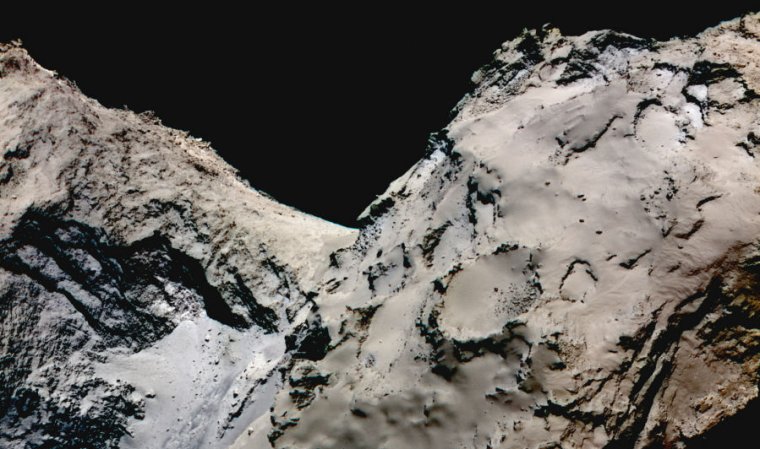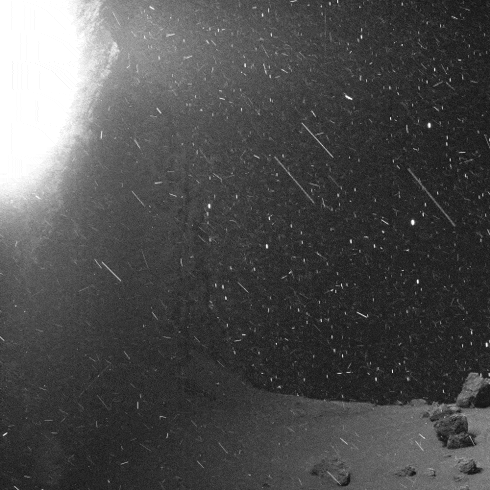
The European Space Agency's Rosetta spacecraft arrived at Comet 67P/Churyumov–Gerasimenko in 2014 and subsequently became the first mission to ever orbit around a comet. Additionally, its small Philae lander became the first to touch down on a comet’s surface—although it was subsequently lost after it was unable to deploy its solar panels in a proper configuration to capture enough energy to continue operations.
During its two years in varying orbits around the comet, which is about 4km on its longest side, Rosetta captured some unprecedented imagery of these Solar System interlopers. Now, a Twitter user named landru79 has combed through the Rosetta image archives and found a striking series of 12.5-second exposure photos taken from about 13km away from the comet. The images from June 1, 2016, are combined into the short video below.
The bright dots travelling from the top of the frame to the bottom, which look something like snow, are in fact background stars. They have that apparent motion as the spacecraft moves and the comet rotates. The more rapidly moving streaks are thought to be dust particles illuminated by the Sun. There also appear to be a few streaking cosmic rays.

From a scientific standpoint, Rosetta confirmed that comets are remnants from when the Solar System formed, rather than fragments from later collisions. Comets therefore offer a window to 4.6 billion years ago. The program was a public relations success, too, as the latest breathtaking images continue to demonstrate.
https://arstechnica.com/science/2018/04/a-short-new-movie-of-a-comets-surface-is-pretty-incredible/Bagikan Berita Ini














0 Response to "A short, new movie of a comet's surface is pretty incredible"
Post a Comment